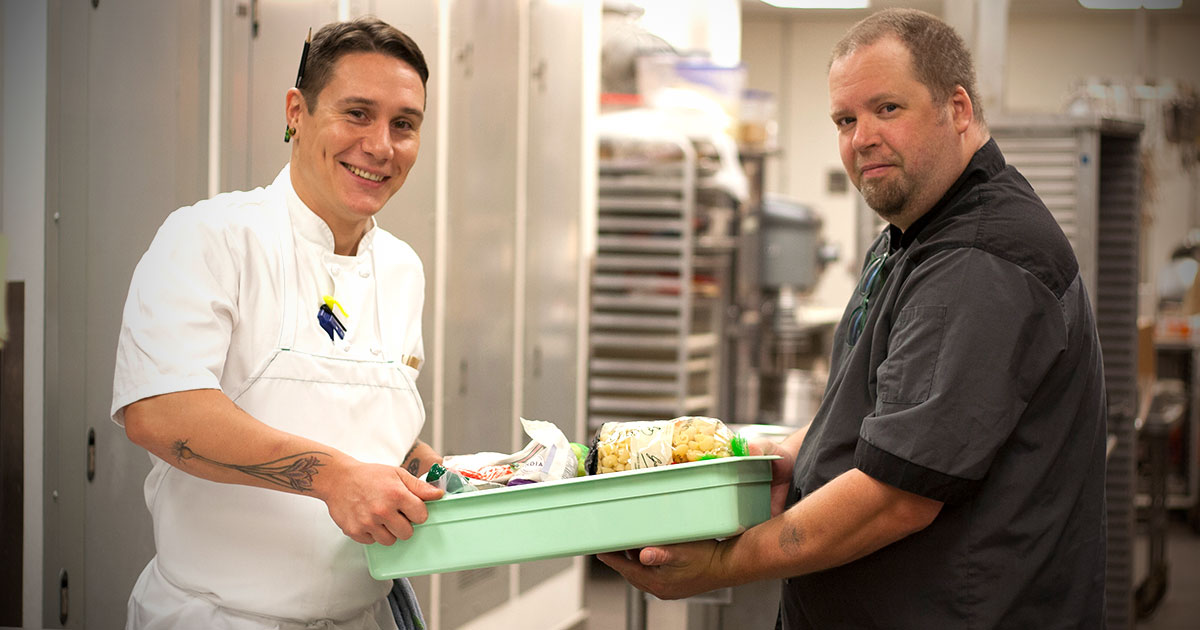2020 Wasn’t A Total Waste: Bon Appétit Rises to Challenge of Shutdowns with Record Number of Food Donations
- by bonappetit

A Food Lifeline volunteer picks up food recovery donations from a Bon Appétit Seattle location in pre-COVID times
Early last year, when offices and colleges started sending workers and students home, Bon Appétit chefs across the country were forced to bring their kitchens (that feed those employees and students) to a screeching halt. Before turning off the lights and closing their doors — for what would be much longer than anyone anticipated — they first had to figure what to do with all the food in their walk-in coolers and pantries. At the same time, food banks throughout America were being flooded with record numbers of people in need of food assistance. Two problems, with one very clear solution: food recovery!
The Bon Appétit waste team has run the numbers from our food recovery partners, including Chefs to End Hunger, and those captured by our proprietary Waste Not program. In our 2020 fiscal year, Bon Appétit locations collectively donated more than a quarter of a million pounds of food (257,998 pounds, to be exact) — an all-time record number of donations. And that’s only the donations that were actually tracked! Many of our cafés donate directly to small, local food banks and other hunger-relief organizations without going through reporting systems, which means this is just a snippet of what was actually distributed in communities across the country.
While last year was exceptional for so many reasons, our commitment to getting excess food to people in need is not unique to 2020. Since 2015, as part of our Low Carbon Lifestyle commitments, we’ve aspired to ensure that at least 80% of our accounts Food Recovery Verified, meaning they’re regularly donating their excess food to people in need, as verified annually by a third party.
Six years after making that companywide commitment, we remain steadfast in our efforts to save food from going to waste. While the world and our business may look a little different these days, our resolution to feed people, not landfills, endures.